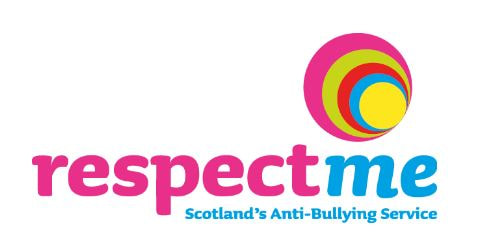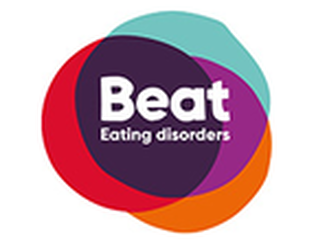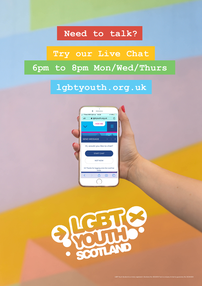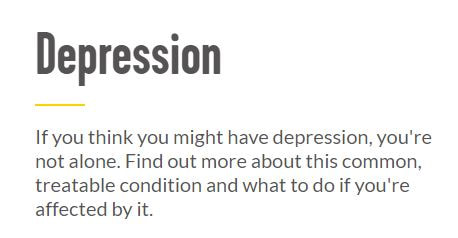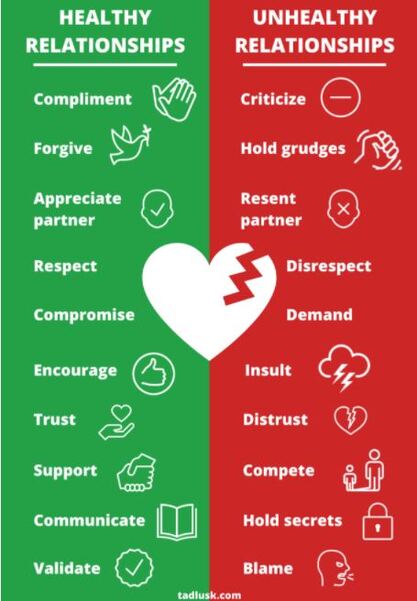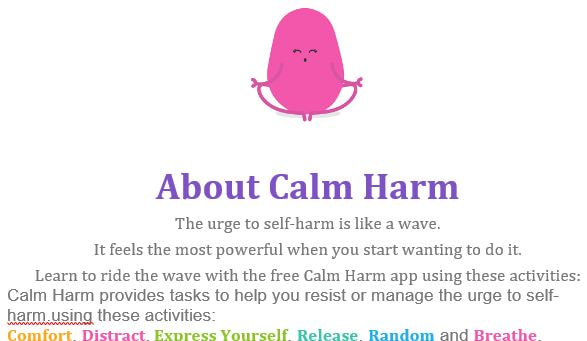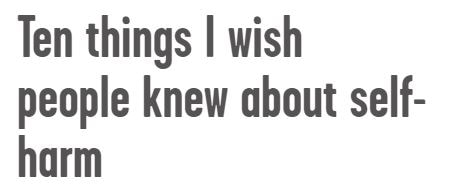Symptoms and Specific Issues that may have an effect on our health and wellbeing.
|
Use the drop down menu to navigate to relevant section of the page
|
Use this drop down menu to browse various support ideas and strategies to boost your wellbeing
|
Anxiety and Stress
Explaining Anxiety and Stress
We all experience stress sometimes. It’s our bodies response to pressure. Some stress can be good and motivate us to do something we’re nervous about like taking a test, public speaking or running a race. However, sometimes stress can be overwhelming and interfere with our daily lives.
Anxiety is a term used to describe the thoughts, feelings and physical sensations we get when we are frightened, worried or stressed. Most of us worry sometimes – about things like friendships and schoolwork – and feel anxious when we’re under stress, like at exam time. But after the stressful event we usually calm down and feel better.
But when you’re not in a stressful situation, and you still feel worried or panicky, that’s when anxiety can become a problem and affect your day-to-day life.
When we experience stress, our bodies are programmed to produce hormones to trigger stress responses known as fight, flight or freeze. These responses are designed to keep us safe from danger: to either fight the danger, run from it (flight) or freeze and hide. Although we may not actually have to fight, run or hide we often still feel the physical sensations associated with these responses during stressful times. Common sensations include a fast racing heart, tense muscles, butterflies in the tummy, sweating, and dizziness.
This video explains our bodies response to stress and anxiety, particularly during exam time:
Anxiety is a term used to describe the thoughts, feelings and physical sensations we get when we are frightened, worried or stressed. Most of us worry sometimes – about things like friendships and schoolwork – and feel anxious when we’re under stress, like at exam time. But after the stressful event we usually calm down and feel better.
But when you’re not in a stressful situation, and you still feel worried or panicky, that’s when anxiety can become a problem and affect your day-to-day life.
When we experience stress, our bodies are programmed to produce hormones to trigger stress responses known as fight, flight or freeze. These responses are designed to keep us safe from danger: to either fight the danger, run from it (flight) or freeze and hide. Although we may not actually have to fight, run or hide we often still feel the physical sensations associated with these responses during stressful times. Common sensations include a fast racing heart, tense muscles, butterflies in the tummy, sweating, and dizziness.
This video explains our bodies response to stress and anxiety, particularly during exam time:
We are also more likely to experience anxiety at different stages in our lives. During our teens and adolescence our brain goes through huge changes and development. These changes can make us more likely to perceive things as more stressful and dangerous.
So what can we do when anxiety becomes a problem?
Lots more info on anxiety and ideas to help you in the following websites:
So what can we do when anxiety becomes a problem?
Lots more info on anxiety and ideas to help you in the following websites:
Bullying
No one deserves to be bullied.
Bullying affects over one million young people every year, and anyone can be bullied.
What is bullying?
Bullying is a mixture of behaviours and impacts; what someone does and the impact that it has on you, which affects your ability to feel safe and in control of yourself.
Bullying behaviour happens face to face and online and can include:
Bullying affects over one million young people every year, and anyone can be bullied.
What is bullying?
Bullying is a mixture of behaviours and impacts; what someone does and the impact that it has on you, which affects your ability to feel safe and in control of yourself.
Bullying behaviour happens face to face and online and can include:
- Being called names, being teased or made fun of
- Being hit, pushed or kicked
- Having your belongings taken or damaged
- Being ignored, left out, or having rumours spread about you
- Being humiliated
- Receiving abusive messages or having nasty comments made about you online
- Being targeted because of who you are or how people see you
Bullying can be a one-off or it can go on for a long time. And bullying can happen to anyone. “Bullying is not your fault, and things can get better”.
Bullying can make you feel isolated and worthless, lonely, anxious, angry and lacking confidence. You may experience some or all of these feelings.
Bullying can make you feel isolated and worthless, lonely, anxious, angry and lacking confidence. You may experience some or all of these feelings.
|
Bullying in any form is hurtful and unacceptable and can make your life miserable.
No matter how alone you might feel, there is always someone you can talk to and someone who can help. There is also help and advice available from RespectMe- Scotland's Anti-Bullying Service and their website can be found by clicking the image below. |
|
|
If somebody physically hurts you, or verbally abuses you, that’s bullying.
Specific types of bullying include: • homophobic bullying based on your sexual orientation • racist bullying because of your skin colour • religious bullying because of your beliefs or faith • sizeist bullying referring to your body size • sexist bullying focusing on you being of the opposite sex • cyberbullying targeting you online, often anonymously • bullying because you are different |
Eating Difficulties
You may not have had any reason to know much about eating difficulties previously, and sometimes you may have heard them referred to as eating disorders. You may only know information about eating difficulties from how they are portrayed in the media, including how sufferers may describe them on social media too. TV and movies often portray a particular type of story in terms of who gets eating disorders, what causes them, and what the symptoms are. For example, you may have often heard about the experiences of young white women with anorexia, which doesn’t reflect the full spectrum of eating disorders and people who can develop them.
Anyone, no matter what their age, gender, ethnicity or background, can develop an eating difficulty, which can range in severity. It is important to seek help early, as they can develop into more complex mental illnesses. Some examples of eating disorders include avoidant/restrictive food intake disorder (ARFID), bulimia, binge eating disorder, and anorexia. One of the best resources for anyone experiencing eating difficulties is Beat, and Young Minds have some young people focused advice.
Anyone, no matter what their age, gender, ethnicity or background, can develop an eating difficulty, which can range in severity. It is important to seek help early, as they can develop into more complex mental illnesses. Some examples of eating disorders include avoidant/restrictive food intake disorder (ARFID), bulimia, binge eating disorder, and anorexia. One of the best resources for anyone experiencing eating difficulties is Beat, and Young Minds have some young people focused advice.
Grief and Loss
|
Losing someone you care about (whether a family member, friend or pet) can be really tough. It’s natural to feel sad, angry, guilty, worried, confused, and many more strong emotions. It’s also normal to not feel anything. Your response to your loss is known as grief.
As well as affecting how you feel emotionally, it can affect your thoughts and relationships and how you feel physically. It can also change with time. |
|
|
|
Everyone grieves differently…..it’s important to remember there is no right way or wrong way.
It takes time and space to come to terms with loss. It can help to talk to someone, find ways to express your feelings and look after yourself. Things can get easier over time. If you’re finding it hard to cope, it’s important to get support. |
LGBT +
|
|
Being LGBT+ is something to be celebrated. However, despite much progress and legal changes in Scotland, for many young people, stigma and discrimination is still an unacceptable everyday reality. If you’re experiencing this and it’s having an impact on your mental health it’s important to access support.
|
|
LGBTI Youth are Scotland’s national charity for LGBTI young people, working with 13–25 year olds across the country and promoting LGBTI equality and human rights across schools, businesses and organisations.
Their goal is to make Scotland the best place to grow up for lesbian, gay, bisexual, transgender and intersex young people. They offer live chat, youth groups (online during covid) and text support as well as lots of information and advice on their website. |
Here are Marr we have an LGBT+ Allies pupil group who raise awareness, support LGBT+ pupils and help to make Marr College the best place to learn for LGBT+ young people. Please follow them on twitter @MarrAllies.
Low Mood and Depression
Everyone can feel low or sad at times, it is when these feelings last a long time or become so severe that it is all that you feel, that you might be suffering from depression. As well as feeling low you may start to experience feelings of failure, hopelessness or sadness. These feeling may start to affect your everyday life and ability or motivation to engage in day-to-day activities. Depression is one of the most common types of mental illness, and can affect teens just the same as adults. The good news is that depression does not need to rule your life and there is support for you to begin to emerge from these low moods.
Click either of the images below for online support.
Click either of the images below for online support.
Neurodiversity
We are all different and equally unique. Sometimes these differences can have an impact on our well being. This is often due to a lack of understanding from others.
Neurodiversity typically refers to people with diagnosed neurodevelopmental conditions and learning difficulties and is used to explain why such people may need a bit more support, particularly in school.
Neurodiversity is a relatively new term and was conceived to recognise the variety we observe and value around us, believing this can also be applied to people whose brains are different from the majority of people, known as ‘neurotypical’. These variations include autism, ADHD, the various forms of ‘dys’ (-lexia, -praxia, -calculia etc.), learning disabilities and more.
Between 30% and 40% of the population are thought to be neurodiverse. The remaining majority are neurotypical.
Just as there are huge differences in neurotypical people, there are also wide variations in people with similar forms of neurodevelopmental conditions.
The wonderful reality of the human brain is that there is no ‘normal’ from which we diverge.
Increasingly people are becoming more aware of this, however there is often still a lack of knowledge and understanding about neurodiversity.
Neurodiversity is a relatively new term and was conceived to recognise the variety we observe and value around us, believing this can also be applied to people whose brains are different from the majority of people, known as ‘neurotypical’. These variations include autism, ADHD, the various forms of ‘dys’ (-lexia, -praxia, -calculia etc.), learning disabilities and more.
Between 30% and 40% of the population are thought to be neurodiverse. The remaining majority are neurotypical.
- 8% of people in the UK are thought to have ADHD
- 10% of people in the UK are thought to have dyslexia
- 8% of people in the UK are thought to have dyspraxia
- 1% of people in the UK are thought to have an autistic spectrum condition
Just as there are huge differences in neurotypical people, there are also wide variations in people with similar forms of neurodevelopmental conditions.
The wonderful reality of the human brain is that there is no ‘normal’ from which we diverge.
Increasingly people are becoming more aware of this, however there is often still a lack of knowledge and understanding about neurodiversity.
All brains and bodies are different and all differences deserve respect!
Many aspects of our world are based on the outdated assumption that there is one type of human brain and human body and so many systems are in place to suit that one type. Thankfully this is changing however this way of thinking can often affect the mental health and wellbeing of people who don’t fit into the dominant box.
If you feel that your wellbeing is being affected by any of these issues, there are lots of people at Marr to help and support you. There is also much more advice and guidance on the these wellbeing pages.
There are also lots of ways you can be supported in a practical sense. For example, a pupil with ADHD may not be able to focus the same way as her neurotypical peers, and therefore be given extra time to complete written tests. Another pupil with a physical disability may need extra time/support to be able to complete certain work too.
If you have an additional support need and need practical help and guidance the Marr Pupil Support and Development Team are not only friendly but also skilled and knowledgeable around the best supports for you. They also have links to other outside services should you require more specialist support.
Learning about neurodiversity and difference helps us move the focus away from impairments towards celebrating different abilities and the incredible diversity of how brains and bodies function.
Building a society that is accessible for people with all abilities, is not only beneficial, for everyone, but fair.
More info on some of these differences below:
Many aspects of our world are based on the outdated assumption that there is one type of human brain and human body and so many systems are in place to suit that one type. Thankfully this is changing however this way of thinking can often affect the mental health and wellbeing of people who don’t fit into the dominant box.
If you feel that your wellbeing is being affected by any of these issues, there are lots of people at Marr to help and support you. There is also much more advice and guidance on the these wellbeing pages.
There are also lots of ways you can be supported in a practical sense. For example, a pupil with ADHD may not be able to focus the same way as her neurotypical peers, and therefore be given extra time to complete written tests. Another pupil with a physical disability may need extra time/support to be able to complete certain work too.
If you have an additional support need and need practical help and guidance the Marr Pupil Support and Development Team are not only friendly but also skilled and knowledgeable around the best supports for you. They also have links to other outside services should you require more specialist support.
Learning about neurodiversity and difference helps us move the focus away from impairments towards celebrating different abilities and the incredible diversity of how brains and bodies function.
Building a society that is accessible for people with all abilities, is not only beneficial, for everyone, but fair.
More info on some of these differences below:
|
ADHD
Dyslexia
|
Autism Spectrum (ASD)
Dyspraxia
|
Relationships
When we think of relationships we mostly start to think about romantic relationships; however every relationship we have can have an impact on our mental health, whether it is with our friends, family or even school staff. This means that we need to know what makes a healthy relationship and understand some of the warning signs that a relationship may become an unhealthy relationship
|
Simply having an argument or disagreement doesn't mean that the relationship is unhealthy, we will all argue and disagree with each other at some point, even with those that we love the most and have the utmost respect for. What we need to notice is what happens after we argue. Do we forgive? Do we respect differing opinions? Do we compromise with each other? Or do we hold grudges? Do we devalue opinions? Do we demand the other person shares our opinion?
Both the video below and the image might help you start to notice the difference and as always if you need support with relationships reach out to staff in school. |
Self-Harm
Self-harm describes any behaviour where you hurt yourself on purpose, usually as a way to cope with negative thoughts, feelings or experiences that feel wrong, it seems that self-harm is the only way to let these feeling out. It is a very common behaviour and can affect 10% of 15-16 year olds. It may take several forms, such as cutting or burning and younger children may pick or scratch at wounds or pull their hair out.
If you self-harm it is usually a sign that you are experiencing another mental health problem, such as anxiety, depression, stress or you are being bullied. You may feel that you have no other way of dealing with these issues and turn to self-harm. The issue is that self-harming often only brings a temporary relief to the main issue, and you are still having to deal with it, again over time. It can be upsetting for anyone who self-harms to think that this is the only way they have to cope, but there are other healthy ways of supporting positive mental health and you can find some on the Support and Strategies page.
If you self-harm it is usually a sign that you are experiencing another mental health problem, such as anxiety, depression, stress or you are being bullied. You may feel that you have no other way of dealing with these issues and turn to self-harm. The issue is that self-harming often only brings a temporary relief to the main issue, and you are still having to deal with it, again over time. It can be upsetting for anyone who self-harms to think that this is the only way they have to cope, but there are other healthy ways of supporting positive mental health and you can find some on the Support and Strategies page.
|
‘No Harm Done’ is a response to the powerful cry for help from young people, parents and professionals who have told us just how difficult dealing with self-harm is. The films were co-produced with young people, parents and professionals to reassure those affected by self-harm that things can and do improve. |
|
|
If you are concerned about self-harming or want to talk about it remember your guidance teacher is always available for you, and if you are an adult please reach out also. Also it is important to seek medical advice, such as the school nurse, if your injuries are severe or look infected. Other support systems are Tellmi app that allows you to talk anonymously about difficult things with other people of a similar age or experience. You can get help with your problems or use your experiences to help others. The app is a safe space where all posts and replies are checked before going live so there is no harassment, bullying or grooming.
Another great app you could download is Calm Harm |
Sleep
|
Sleep is very important for both our physical and mental health. Whilst we sleep our bodies are still doing a lot of work, here are a few things our bodies do when we sleep:
|
"There's a close relationship between sleep and mental health. Getting good sleep, and enough of it, is really important for maintaining our mental wellbeing. It can help us have more energy, feel more positive, and feel less stressed."
Stephen Buckley, Head of Information at Mind
If you've ever spent the day feeling groggy, grumpy and easily annoyed the chances are you might not be getting the right amount of sleep. Sleep is vital for us as humans and the NHS recommends 6-8 hours of sleep for adults and 8-10 hours of sleep for teenagers. One of the best things you can do to help you fall asleep every night is to create and stick to a bedtime routine; do the same things around the same time each night and your body will soon learn this means it is time to sleep. Ideally this routine will include an hour of no screen time and some relaxation technique. Great advice on how to sleep better can be found here.
Stephen Buckley, Head of Information at Mind
If you've ever spent the day feeling groggy, grumpy and easily annoyed the chances are you might not be getting the right amount of sleep. Sleep is vital for us as humans and the NHS recommends 6-8 hours of sleep for adults and 8-10 hours of sleep for teenagers. One of the best things you can do to help you fall asleep every night is to create and stick to a bedtime routine; do the same things around the same time each night and your body will soon learn this means it is time to sleep. Ideally this routine will include an hour of no screen time and some relaxation technique. Great advice on how to sleep better can be found here.
Suicidal Thoughts
Anyone can feel suicidal at times and the reasons for feeling this way are wide and varied. Some reasons include feeling isolated and alone, experiencing something that feels too overwhelming, feeling there is no escape from a situation or feeling that being alive is too difficult. Some people experience suicidal thoughts when life seems to be going well. This can lead to guilt which makes the feelings and thoughts even worse.
When we feel unable to cope with life, suicide may start to feel like the only option to escape.
If you are finding it hard to talk to anyone about how you are struggling, or you are feeling hopeless about getting help, thoughts of suicide might be harder to experience.
What’s important to know is that whatever the reasons you feel suicidal, your reasons are significant and valid. Whatever it is that is troubling you, it is making you think about dying therefore you deserve to be listened to and supported.
Help is available and that with the right help and support you can start to feel more hopeful and in control of your life.
When we feel unable to cope with life, suicide may start to feel like the only option to escape.
If you are finding it hard to talk to anyone about how you are struggling, or you are feeling hopeless about getting help, thoughts of suicide might be harder to experience.
What’s important to know is that whatever the reasons you feel suicidal, your reasons are significant and valid. Whatever it is that is troubling you, it is making you think about dying therefore you deserve to be listened to and supported.
Help is available and that with the right help and support you can start to feel more hopeful and in control of your life.








